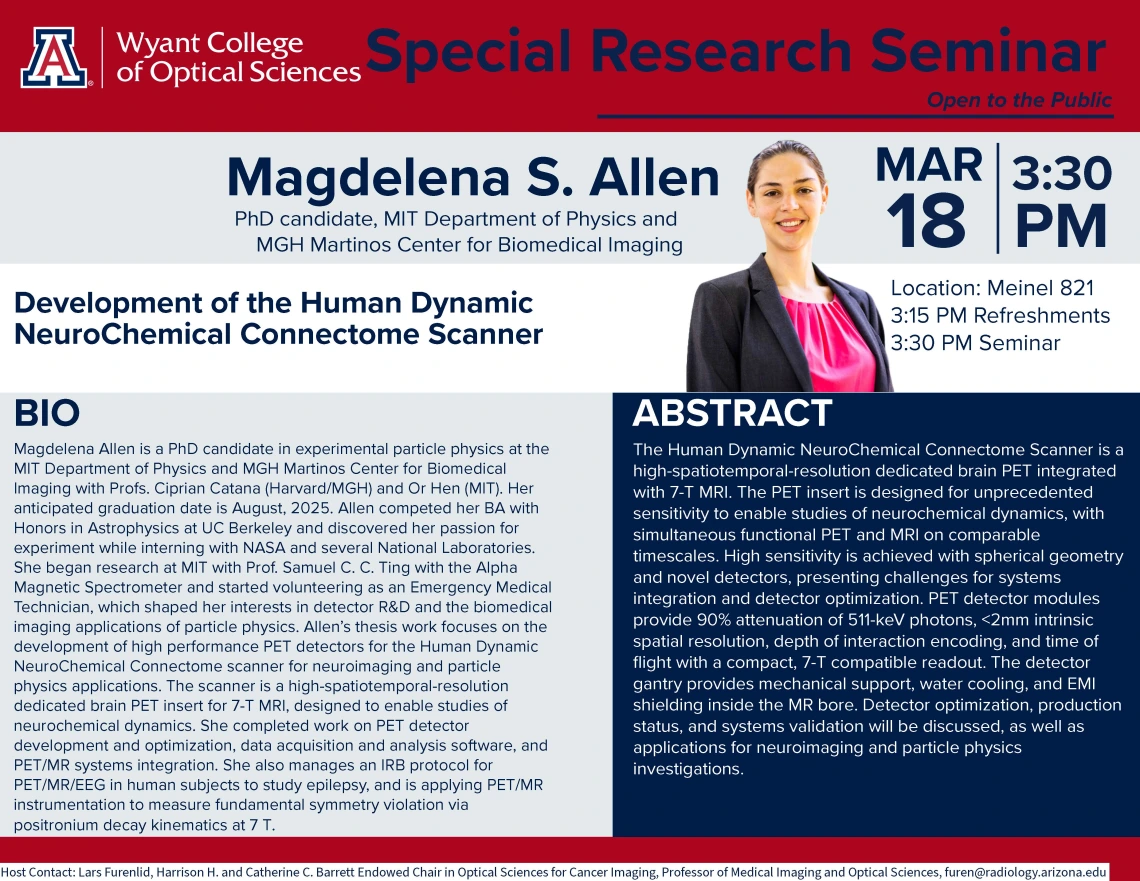
When
Where
Title
Development of the Human Dynamic NeuroChemical Connectome Scanner
Abstract
The Human Dynamic NeuroChemical Connectome Scanner is a high-spatiotemporal-resolution dedicated brain PET integrated with 7-T MRI. The PET insert is designed for unprecedented sensitivity to enable studies of neurochemical dynamics, with simultaneous functional PET and MRI on comparable timescales. High sensitivity is achieved with spherical geometry and novel detectors, presenting challenges for systems integration and detector optimization. PET detector modules provide 90% attenuation of 511-keV photons, <2mm intrinsic spatial resolution, depth of interaction encoding, and time of flight with a compact, 7-T compatible readout. The detector gantry provides mechanical support, water cooling, and EMI shielding inside the MR bore. Detector optimization, production status, and systems validation will be discussed, as well as applications for neuroimaging and particle physics investigations.
Bio
Magdelena Allen is a PhD candidate in experimental particle physics at the MIT Department of Physics and MGH Martinos Center for Biomedical Imaging with Profs. Ciprian Catana (Harvard/MGH) and Or Hen (MIT). Her anticipated graduation date is August, 2025. Allen competed her BA with Honors in Astrophysics at UC Berkeley and discovered her passion for experiment while interning with NASA and several National Laboratories. She began research at MIT with Prof. Samuel C. C. Ting with the Alpha Magnetic Spectrometer and started volunteering as an Emergency Medical Technician, which shaped her interests in detector R&D and the biomedical imaging applications of particle physics. Allen’s thesis work focuses on the development of high performance PET detectors for the Human Dynamic NeuroChemical Connectome scanner for neuroimaging and particle physics applications. The scanner is a high-spatiotemporal-resolution dedicated brain PET insert for 7-T MRI, designed to enable studies of neurochemical dynamics. She completed work on PET detector development and optimization, data acquisition and analysis software, and PET/MR systems integration. She also manages an IRB protocol for PET/MR/EEG in human subjects to study epilepsy, and is applying PET/MR instrumentation to measure fundamental symmetry violation via positronium decay kinematics at 7 T.
If you cannot attend in person, please use our zoom link: https://arizona.zoom.us/j/85257990703
